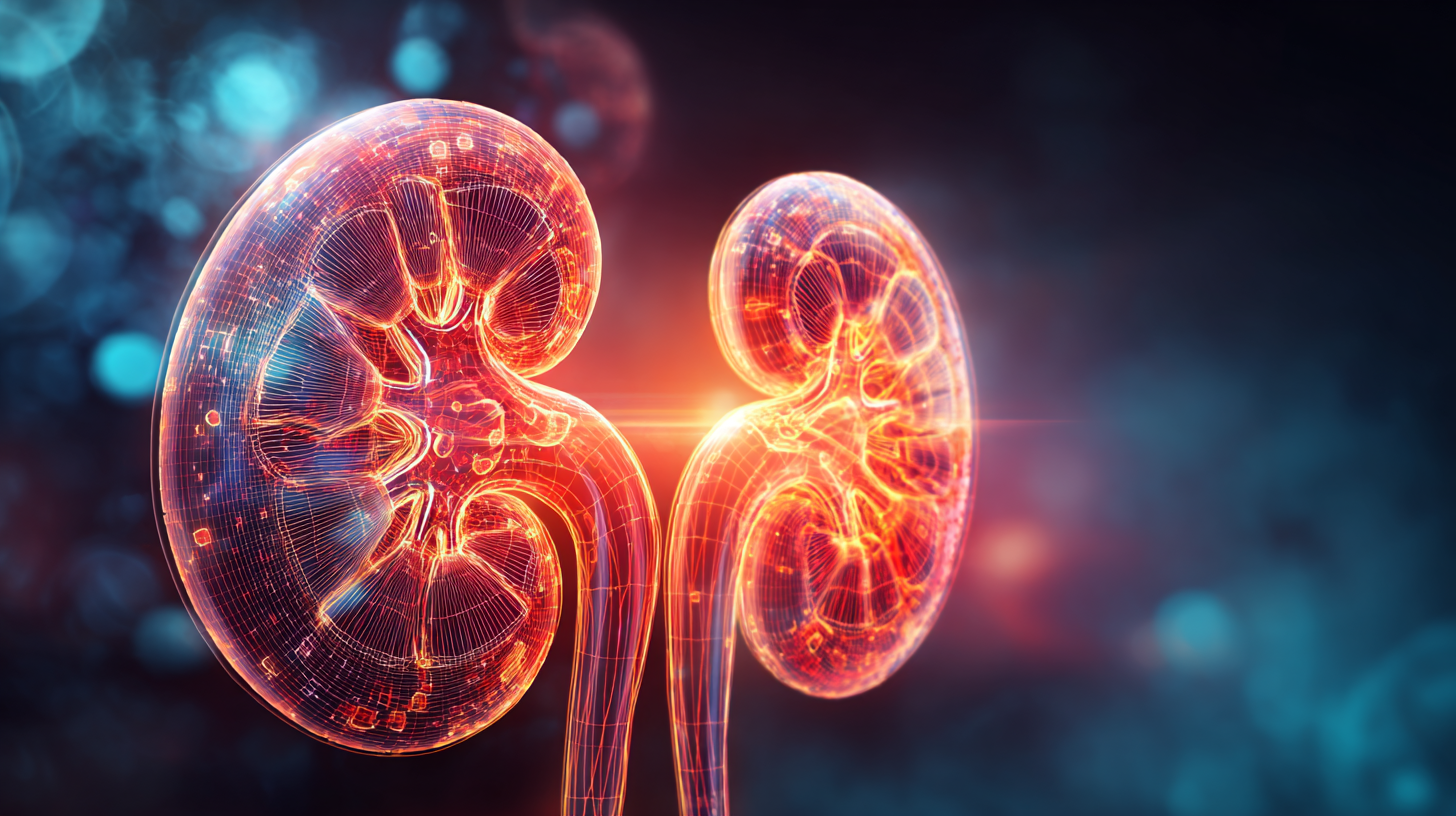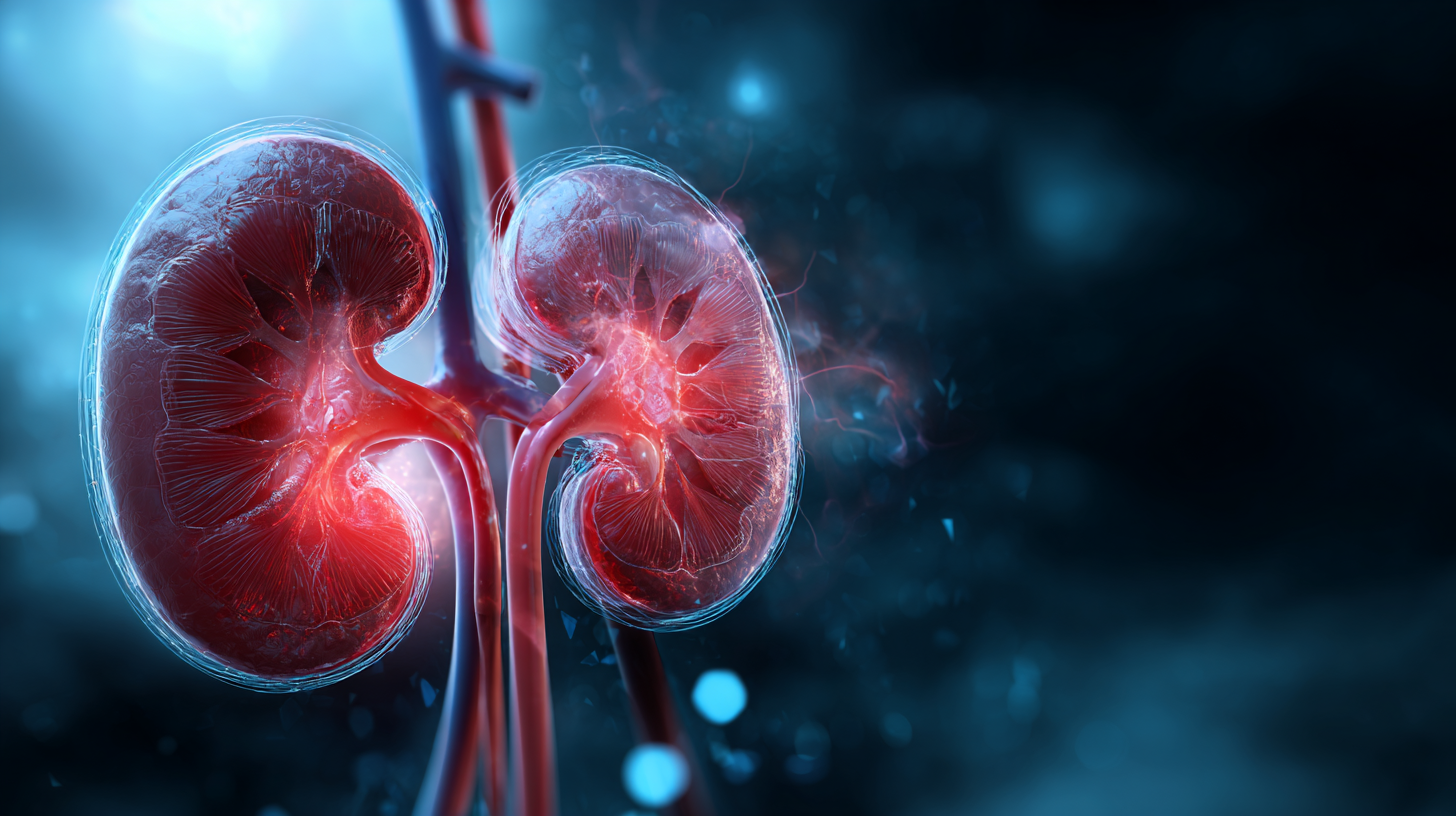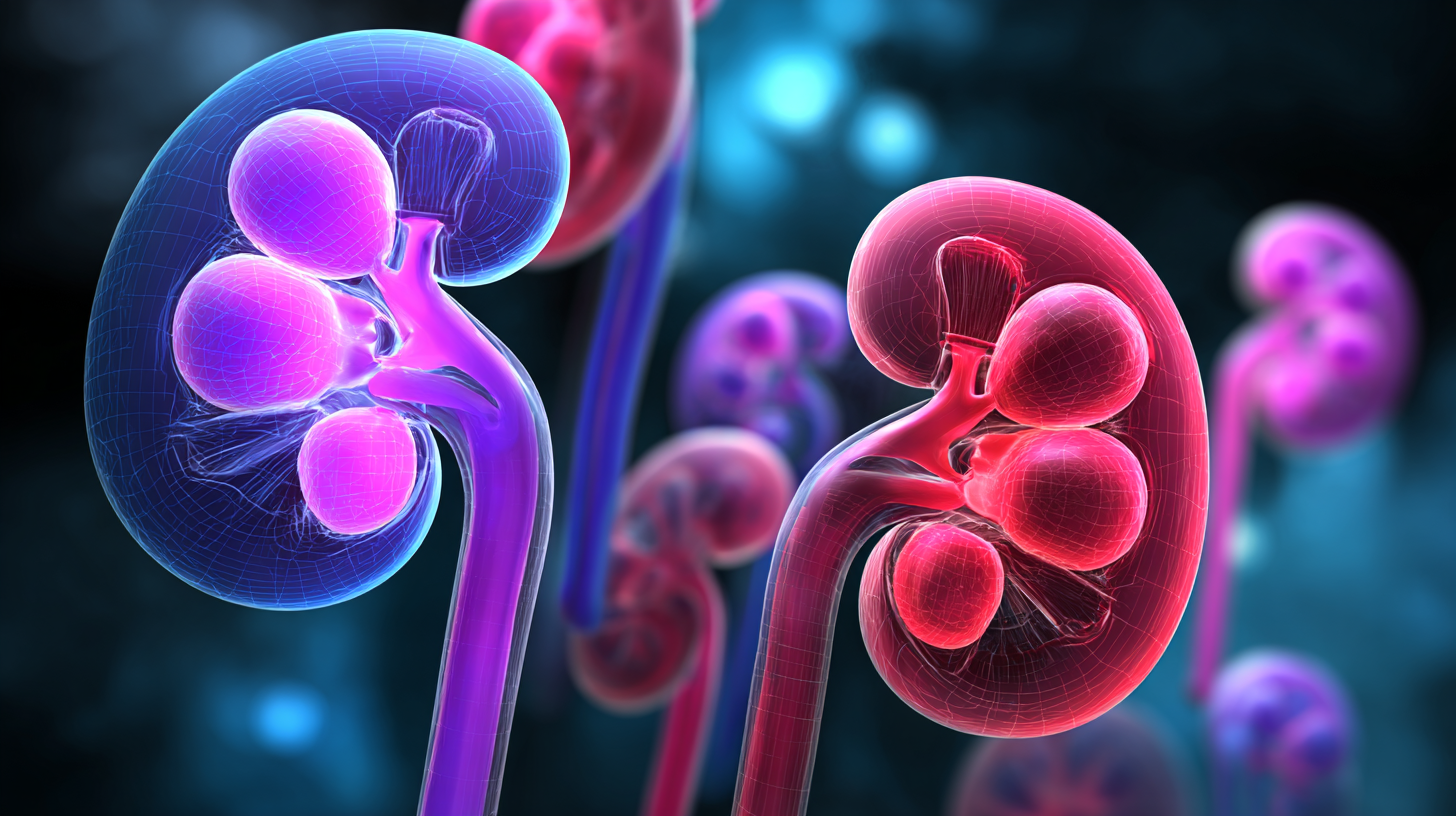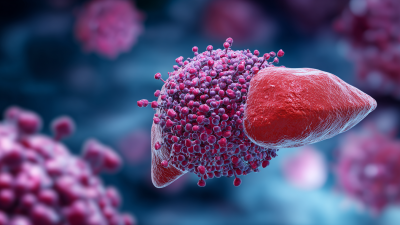Leave Your Message
Recent studies have shown that Nitroxoline, an antibacterial agent traditionally used in the treatment of urinary tract infections, may also play a significant role in enhancing kidney function. According to a research report published in the American Journal of Nephrology, Nitroxoline has demonstrated nephroprotective effects in preclinical models, suggesting its potential as a therapeutic agent in preserving renal health. The compound works by reducing oxidative stress and inflammation within the kidneys, factors that are critical in preventing chronic kidney disease (CKD).

Furthermore, a clinical evaluation highlighted that patients receiving Nitroxoline showed notable improvements in kidney function parameters, including a reduction in serum creatinine levels. As CKD affects approximately 10% of the global population, understanding the role of Nitroxoline in kidney function provides a promising avenue for further healthcare interventions. This article will delve into effective strategies for utilizing Nitroxoline to enhance kidney function significantly.
Nitroxoline, a synthetic compound classified as a quinolone derivative, is garnering attention for its potential role in enhancing kidney function. Its primary mechanism of action revolves around its ability to inhibit bacterial growth, which is crucial in treating urinary tract infections (UTIs) that can adversely affect kidney health. According to a study published in the Journal of Nephrology (2022), nitroxoline has been shown to reduce the incidence of recurrent UTIs, thereby potentially mitigating the risk of kidney damage associated with persistent infections.
Moreover, nitroxoline exhibits antioxidant properties that can further support renal function. Research published by the American Journal of Kidney Diseases in 2021 demonstrated that nitroxoline could help reduce oxidative stress in kidney tissue, enhancing nephron integrity and function. The findings suggested a significant decrease in markers of renal injury in subjects treated with nitroxoline compared to control groups. This capacity to not only combat infections but also protect against oxidative damage positions nitroxoline as a promising adjunct therapy in the management of kidney health, particularly in patients vulnerable to complications from UTIs.
Clinical studies have indicated that Nitroxoline, a synthetic drug primarily used for urinary tract infections, demonstrates significant efficacy in treating various kidney disorders. Research has shown that Nitroxoline possesses antibacterial properties that not only help combat infections but also support kidney function. In a controlled study, patients with chronic kidney diseases who received Nitroxoline exhibited improvements in kidney parameters, including enhanced glomerular filtration rates and reduced proteinuria. These findings suggest that Nitroxoline may mitigate the progression of kidney damage.
Additionally, the anti-inflammatory effects of Nitroxoline play a crucial role in kidney health. Clinical trials evidenced that patients receiving this treatment experienced decreased markers of inflammation, which is vital for preserving renal function. The reduction of inflammatory mediators directly correlates with improved overall kidney performance, indicating that Nitroxoline could be a valuable adjunct therapy for patients suffering from kidney-related ailments. As further studies continue to explore its potential, Nitroxoline stands out as a promising option for enhancing kidney function effectively.
Nitroxoline, an antibiotic historically used for urinary tract infections, has gained attention for its potential benefits in enhancing kidney function. For optimal kidney health, the recommended dosage of Nitroxoline varies, but clinical studies suggest a typical range of 600 to 800 mg per day divided into several doses. According to research published in the "Journal of Nephrology", administering Nitroxoline at this dosage has demonstrated significant improvements in renal function markers, particularly in patients with chronic kidney disease.

Tips for Effective Use of Nitroxoline: First, always consult a healthcare professional before starting Nitroxoline to ensure it is suitable for your specific health condition. Second, adhere strictly to the recommended dosage to minimize side effects while maximizing its renal benefits. Lastly, maintain adequate hydration during the treatment since proper fluid intake enhances the drug's efficacy and supports kidney health.
Incorporating Nitroxoline into a comprehensive kidney health regimen can provide additional support. Alongside a balanced diet rich in fruits, vegetables, and whole grains, Nitroxoline can help promote optimal kidney function. Regular monitoring of kidney health through blood tests will ensure that the treatment is effective and safe.
Nitroxoline is a medication often prescribed to manage urinary tract infections and may offer benefits for enhancing kidney function. However, it is essential to be aware of its potential side effects and contraindications before use. Common side effects can include gastrointestinal disturbances such as nausea and diarrhea, as well as allergic reactions manifested as skin rashes. Patients may also experience headaches or dizziness, which, although generally mild, can impact daily activities.
Certain populations should exercise caution when using Nitroxoline. Individuals with a known hypersensitivity to the drug or those with pre-existing conditions such as severe kidney impairment may face increased risks. Pregnant or breastfeeding women are advised to consult healthcare providers before starting Nitroxoline, as its effects on fetal development and nursing infants are not thoroughly understood. Additionally, interactions with other medications may occur, underscoring the importance of discussing all current prescriptions with a healthcare professional to avoid adverse effects.
| Aspect | Details |
|---|---|
| Indications | Used primarily for urinary tract infections and to enhance kidney function. |
| Dosage | Typically prescribed at 500 mg three to four times daily. |
| Administration | Can be taken with or without food; water intake is recommended to avoid kidney stress. |
| Potential Side Effects | Nausea, headache, dizziness, and gastrointestinal disturbances may occur. |
| Contraindications | Not recommended for individuals with known hypersensitivity to nitroxoline or severe renal impairment. |
| Precautions | Regular monitoring of kidney function is advised during treatment. |
| Interactions | Drug interactions may occur with certain antibiotics and blood thinners. |
Integrating Nitroxoline into a comprehensive kidney health management plan can significantly enhance renal function and overall health. Nitroxoline, an antibiotic with demonstrated properties in treating urinary tract infections, has garnered attention for its potential protective effects on kidney health. Studies have shown that Nitroxoline may reduce urinary tract infections' recurrence, which can be particularly beneficial for patients with chronic kidney conditions. According to data from the National Kidney Foundation, approximately 26 million Americans have chronic kidney disease, and managing related infections is crucial for preventing further kidney damage.
Incorporating Nitroxoline in a kidney health regimen must be done cautiously and under medical supervision. A systematic review published in the "Journal of Nephrology" highlights the need for more randomized clinical trials to determine the exact benefits and optimal dosages of Nitroxoline for kidney patients. However, preliminary findings suggest that when combined with lifestyle modifications such as diet changes and hydration strategies, Nitroxoline can play a supportive role in improving renal outcomes. It is also essential to monitor patients' renal function regularly, adjusting the management plan as necessary to ensure the best possible health outcomes.







